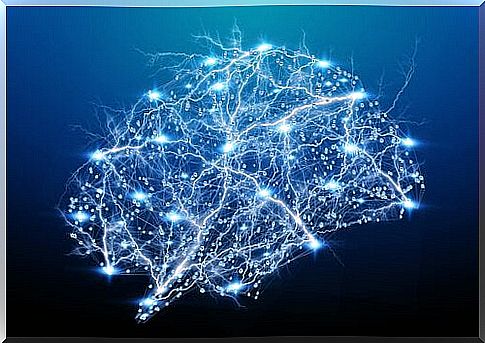Great Intelligence And Genetic Inheritance

What are the factors that determine a person’s great intelligence? There are many rumors and studies that support the idea that our IQ is determined or highly conditioned by the genetic code. However, this relationship is not always as direct and clear as it seems. In reality, for an intellectual predisposition to manifest itself, a whole series of factors must be linked.
When we talk about extraordinary intelligence, it is almost obligatory to refer to one man in particular: William James Sidis. This young man, whose trajectory was fleeting and who died in the mid-1940s in the United States, is now considered the man with the most amazing (and documented) intellectual abilities. In fact, it is estimated that his IQ exceeded 250 points.
If he was able to enroll at Harvard University at the age of 9, it was not only due to his genetic heritage. His mother Sara was a doctor and his father Boris a psychiatrist and expert in psychology and development. The two Ukrainian scientists knew well that the development of a high IQ does not depend only on our chromosomes.
Great intelligence is the result of a favorable environment, as well as a receptive brain. Sidis’ parents oriented their son’s life towards a single goal: to maximize his cognitive abilities. The result exceeded their expectations. However, this young man was no mere child prodigy. He was a clearly unhappy person.

Great intelligence and genetics: intelligent parents = brilliant children?
Intelligence, like human behavior, is a complex phenomenon. Defining it, however, is not complicated, since it includes all those experiences in which a person shows a clear ability to learn, reason, plan, solve problems, think in abstract terms, understand complex ideas and give highly creative answers.
The real challenge has always been to understand exactly what determines the individual differences linked to each of these skills. We might believe that it is genetic inheritance that favors the development of such skills. A study carried out in 2016 at the University of Glasgow showed that genes associated with cognitive functions are mainly inherited from mothers. The X chromosome, so to call it, would determine a large part of our intellectual potential.
Well, let’s use the conditional because the question is not yet completely clear. A recent study published in the journal Genetic Reference demonstrates something that experts have been guessing for nearly a century. It is the social contexts that shape us and set the conditions that allow us to reach our full cognitive potential or not. Genetic inheritance, for its part, determines it for only 40%.

Intelligence, a dimension sensitive to an infinite number of factors
Neurologists have repeatedly stated that man tends to overestimate the idea of great intelligence. When brain surgery is performed, it is not possible to identify a specific area that distinguishes it. There is no specialized structure that makes us brighter than others. In reality, a series of processes that act in harmony come into play, a hyperconnected synaptic world that determines a more awake, more sensitive, more effective brain than the average.
Great intelligence can depend on our genes, yes, but in addition a whole host of other factors are involved:
- A secure bond with the mother characterized by constant emotional exchange.
- Positive growth.
- Adequate nutrition.
- School assistance and the opportunity to receive a good education with the right resources.
- A favorable and stimulating social context (good family, trained teachers, an adequate and safe community…).

Unfavorable growth conditions and brain plasticity
At this point, a question might arise: what if my genetic inheritance is associated with great intelligence, but I didn’t have a favorable childhood to develop it? What if the environment I grew up in was unfavorable and my academic performance was low? Does this mean that I will no longer be able to improve my IQ?
Any psychologist or psychology enthusiast has a key figure in this discipline in mind. Let’s talk about Kurt Lewin. The father of modern social psychology defined a concept that laid the foundations for many later theories and studies : the theory of the field or the power of the context. In essence, Lewin demonstrated that the human being is the result of the interaction of all his experiences, past and especially present ones. We are our attitudes, what we choose to do with our experience.
Thus, through the study of the trajectory of twins separated at birth and raised in different contexts, it was possible to see how an unfavorable environment with scarce economic resources significantly affects the development of intelligence. However, our potential does not remain totally dormant or extinguished by such sterile conditions. Not if the person at a given moment has the opportunity to confront or build a context that allows him to recover the “lost ground”.

Lewin found that when the twin raised in an unfavorable context went against the dictates of his adoptive parents, he allowed his genotypes to express themselves freely. His cognitive abilities improved when he found a motivation, a goal consistent with his interests and an environment that facilitated the achievement of his goals.
The brain, after all, is not a fixed and stable entity. Plasticity, our curiosity and our will are capable of producing authentic miracles.









